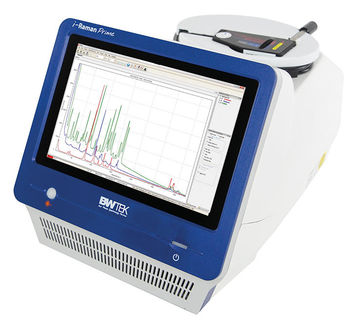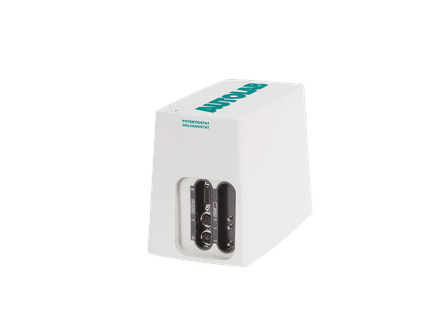To use all functions of this page, please activate cookies in your browser.
my.chemeurope.com
With an accout for my.chemeurope.com you can always see everything at a glance – and you can configure your own website and individual newsletter.
- My watch list
- My saved searches
- My saved topics
- My newsletter
Truth drug
Product highlight
Real-world useSubstancesDrugs used for this purpose have included ethanol, scopolamine, temazepam, and various barbiturates including the anesthetic induction agent sodium thiopental (more commonly known as sodium pentothal): all sedatives that interfere particularly with judgment and higher cognitive function. While grain alcohol (ethanol) is used for this purpose by many individuals in a more innocent sense, it is used by professionals as well. A book by a former Soviet KGB officer Yuri Shvets based in Washington details the use of near-pure ethanol to verify that a Soviet agent was not compromised by U.S. counterintelligence services.[3] Truth drugs used by Russian secret servicesA defector from the biological weapons department 12 of the KGB "illegals" (S) directorate (presently a part of Russian SVR service) claimed that a truth drug codenamed SP-17 is highly effective and has been widely used. "The 'remedy which loosens the tongue' has no taste, no smell, no color, and no immediate side effects. And, most important, a person has no recollection of having the 'heart-to-heart talk'" (the human subject feels afterwards as if they suddenly fell asleep). Officers of the S directorate used the drug primarily to check the trustworthiness of their own illegal agents who operated overseas. [2] Allegedly assassinated ex-FSB officer Alexander Litvinenko suggested that Russian presidential candidate Ivan Rybkin was drugged with the same substance (identified as SP-117) by FSB agents during the 2004 Russian presidential election (he dropped out of the presidential race due to the alleged kidnapping and drugging by FSB agents) [1] ReliabilityInformation obtained by publicly-disclosed truth drugs has been shown to be highly unreliable, with subjects apparently freely mixing fact and fantasy. Much of the claimed effect relies on the belief of the subject that they cannot tell a lie while under the influence of the drug.[citation needed] In fictionFictional accounts of intelligence interrogation give truth drugs near magical abilities, ranging from instant effects to near-lucid (but totally truthful) speech on part of the subject. Many fictional stories also toy with the distinction between what the person under the influence of the truth drug believes is true and what is really true. Chuck (TV series) episode 8 titled "Chuck Versus the Truth" deals with a villain whose specialty is poisons. The poison of choice happens to be a deadly truth serum. In the fourth novel of the Harry Potter series, Harry Potter and the Goblet of Fire, a magical truth serum called Veritaserum is used on someone who has been masquerading as Mad Eye Moody, to reveal the truth of his work. In this particular case, the serum is 100% effective with complete incapacity to lie. However, there are various magical ways to protect against it, but the fake Moody was unable to use any of them. In the book Artemis Fowl, Artemis lies to the LEPRecon officer Holly Short, saying he had injected her with sodium pentothal in order to learn the L.E.P.'s tactics. In the film Johnny English, Rowan Atkinson uses a hypodermic needle filled with truth serum disguised in a ring. The serum is rather effective, with the victim even volunteering additional information. In the film True Lies, Arnold Schwarzenegger's character is injected with truth serum; his wife takes advantage of this and asks him some questions about his job as a government counter-terrorist agent. In Thomas Pynchon's book Gravity's Rainbow, the chemical sodium amytal is used as a truth serum. In the film The Good Shepherd, Central Intelligence Agency interrogators use a vial filled with LSD in an attempt to determine the validity of information a Soviet defector provided the Agency. LSD, at the time that the film is set, was being experimented with by various organizations to determine its effectiveness as a truth serum. These kinds of tests were carried forward under other studies, the most encompassing study being the Agency's Project MKULTRA. In Greg Cox's Star Trek novel The Eugenics Wars: The Rise and Fall of Khan Noonien Singh, Satrina Kaur of the Chrysalis organization injects Gary Seven with a truth serum to find out who he is and where he is from, as well as his mission. In the book Kallocain by Karin Boye, a truth drug called Kallocain that forces the user to confess their most hidden and private thoughts and feelings. People can be questioned under it and must give an answer they feel is truthful. The liquid is pale green and makes one feel safe. In Kill Bill Volume 2, Bill shoots "The Bride" with a tranquilizer filled with a truth serum he developed himself in order to get truthful answers from The Bride. In the TV series 24, Hyoscine-pentothal is a fictional serum used to interrogate suspects. It supposedly also utilizes pain as an additional incentive. An overdose of the serum can cause cardiac arrest. In the film version of Stormbreaker, one of the gadgets Alex Rider receives is a fountain pen filled with sodium pentothol. In the movie, Meet the Fockers, Jack Byrnes (Robert De Niro) injects a truth serum to get Greg (Ben Stiller) to tell the truth. In an episode of The Fairly Odd Parents, Vicky injects Timmy with a generic truth serum (once to get his deepest secrets out, another time to get him to leak out where he found out she was in love with a stereotypical Brit). See also
Notes
Further reading
|
|||
| This article is licensed under the GNU Free Documentation License. It uses material from the Wikipedia article "Truth_drug". A list of authors is available in Wikipedia. |







